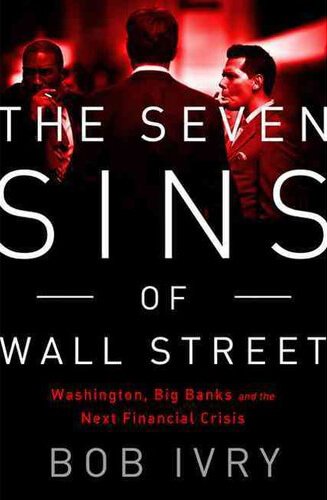The Seven Sins of Wall Street calls for change
Author suggests deposits be kept separate from investment banking
Advertisement
Author suggests deposits be kept separate from investment banking
 With the financial crisis now in the rear-view mirror five years ago, it should be clear sailing for the giant U.S. banks that arguably created the problem, right?
Not according to veteran Bloomberg News editor and investigative reporter Bob Ivry. In his recently published book, The Seven Sins of Wall Street, Ivry pulls no punches about the continued sins of the major players like Bank of America, Citigroup, Goldman Sachs, JP Morgan Chase, Morgan Stanley and Wells Fargo.
Their collective sins? Gluttony, Wrath, Envy, Pride, Sloth and — he saves the best and most obvious for last — Greed. And as the book’s subtitle suggests (Big Banks, Their Washington Lackeys, and the Next Financial Crisis), the fact that so few of these sins were punished the first time around could mean a repeat of the crisis.
Just when you thought it was safe to go back into the water!
With the financial crisis now in the rear-view mirror five years ago, it should be clear sailing for the giant U.S. banks that arguably created the problem, right?
Not according to veteran Bloomberg News editor and investigative reporter Bob Ivry. In his recently published book, The Seven Sins of Wall Street, Ivry pulls no punches about the continued sins of the major players like Bank of America, Citigroup, Goldman Sachs, JP Morgan Chase, Morgan Stanley and Wells Fargo.
Their collective sins? Gluttony, Wrath, Envy, Pride, Sloth and — he saves the best and most obvious for last — Greed. And as the book’s subtitle suggests (Big Banks, Their Washington Lackeys, and the Next Financial Crisis), the fact that so few of these sins were punished the first time around could mean a repeat of the crisis.
Just when you thought it was safe to go back into the water!
Share this article Share on Facebook Share on Twitter Share on Linkedin Share on Reddit Share on Email